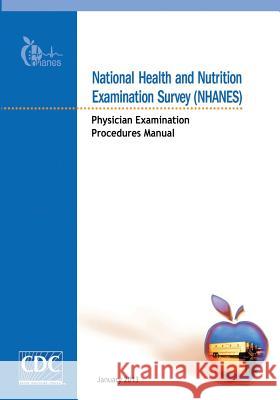National Health and Nutrition Examination Survey (NHANES): Physician Examination Procedures Manual » książka
National Health and Nutrition Examination Survey (NHANES): Physician Examination Procedures Manual
ISBN-13: 9781499258684 / Angielski / Miękka / 2014 / 316 str.
Physicians function as mobile examination center (MEC) team members with the primary function of serving as the safety officer, as well as collecting blood pressure, heart rate, and pulse data. These measurements are the data source for reporting the national standard for blood pressure and heart rate from the NHANES. The American Heart Association blood pressure protocol is used, which results in standardized data collection across both MEC teams. The physician examination protocol, described in detail in Chapter 4, emphasizes the importance of following the protocol for the purpose of systematic, prioritized survey data collection. The physician also serves as a resource in the support of the phlebotomy component. When SPs express concern about the blood draw either for themselves or their children, the physician can discuss the blood draw procedure with the SP, as well as promoting the benefit of the many tests that are reported. Physicians play a role in the pubertal maturation section that is administered in the ACASI section of the MEC Interview to SPs aged 8-19. Before SPs under the age of 18 are assigned to the MEC Interview, a parent/guardian will be informed during the Automated Proxy Interview that his or her child will be asked questions about body development. Before the children are asked these questions, the parent or guardian's informed consent must be obtained during the proxy questionnaire. If the parent expresses reservations or concerns about these drawings, or other aspects of the pubertal maturation section, the MEC staff administering the proxy questionnaire offers the parent the opportunity to discuss the pubertal maturation section with the physician.
Zawartość książki może nie spełniać oczekiwań – reklamacje nie obejmują treści, która mogła nie być redakcyjnie ani merytorycznie opracowana.











